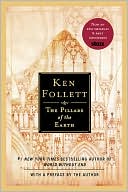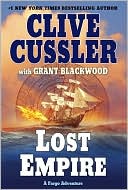Tinkers
Pulitzer Prize\ American Library Association Notable Book\ PEN / Robert Bingham Fellowship for Writers Award\ “In Paul Harding’s stunning first novel, we find what readers, writers and reviewers live for.”—San Francisco Chronicle\ “There are few perfect debut American novels. Walter Percy’s The Moviegoer and Harper Lee’s To Kill a Mockingbird come to mind. So does Marilynne Robinson's Housekeeping. To this list ought to be added Paul Harding’s devastating first book, Tinkers. . . . Harding...
Search in google:
2010 Pulitzer Prize Winner for FictionAn astonishing first novel of memory, consciousness, and man's place in the natural world. An old man lies dying. Confined to bed in his living room, he sees the walls around him begin to collapse, the windows come loose from their sashes, and the ceiling plaster fall off in great chunks, showering him with a lifetime of debris: newspaper clippings, old photographs, wool jackets, rusty tools, and the mangled brass works of antique clocks. Soon, the clouds from the sky above plummet down on top of him, followed by the stars, till the black night covers him like a shroud. He is hallucinating, in death throes from cancer and kidney failure. A methodical repairer of clocks, he is now finally released from the usual constraints of time and memory to rejoin his father, an epileptic, itinerant peddler, whom he had lost seven decades before. In his return to the wonder and pain of his impoverished childhood in the backwoods of Maine, he recovers a natural world that is at once indifferent to man and inseparable from him, menacing and awe inspiring. Tinkers is about the legacy of consciousness and the porousness of identity from one generation to the next. At once heartbreaking and life affirming, it is an elegiac meditation on love, loss, and the fierce beauty of nature.Publishers WeeklyHarding's outstanding debut unfurls the history and final thoughts of a dying grandfather surrounded by his family in his New England home. George Washington Crosby repairs clocks for a living and on his deathbed revisits his turbulent childhood as the oldest son of an epileptic smalltime traveling salesman. The descriptions of the father's epilepsy and the "cold halo of chemical electricity that encircled him immediately before he was struck by a full seizure" are stunning, and the household's sadness permeates the narrative as George returns to more melancholy scenes. The real star is Harding's language, which dazzles whether he's describing the workings of clocks, sensory images of nature, the many engaging side characters who populate the book, or even a short passage on how to build a bird nest. This is an especially gorgeous example of novelistic craftsmanship. (Jan.)Copyright © Reed Business Information, a division of Reed Elsevier Inc. All rights reserved.
\ The New YorkerThis compact, adamantine debut dips in and out of the consciousness of a New England patriarch named George Washington Crosby as he lies dying on a hospital bed in his living room, 'right where they put the dining room table, fitted with its two extra leaves for holiday dinners'-- In Harding's skillful evocation, Crosby's life, seen from its final moments, becomes a mosaic of memories, 'showing him a different self every time he tried to make an assessment.'\ \ \ \ \ The Boston GlobeHarding's interest is in the universalities: nature and time and the murky character of memory. . . The small, important recollections are rendered with an exactitude that is poetic. . . Harding's prose is lyrical and specific...Tinkers is a poignant exploration of where we may journey when the clock has barely a tick or two left and we really can't go anywhere at all.\ \ \ Publishers WeeklyHarding's outstanding debut unfurls the history and final thoughts of a dying grandfather surrounded by his family in his New England home. George Washington Crosby repairs clocks for a living and on his deathbed revisits his turbulent childhood as the oldest son of an epileptic smalltime traveling salesman. The descriptions of the father's epilepsy and the "cold halo of chemical electricity that encircled him immediately before he was struck by a full seizure" are stunning, and the household's sadness permeates the narrative as George returns to more melancholy scenes. The real star is Harding's language, which dazzles whether he's describing the workings of clocks, sensory images of nature, the many engaging side characters who populate the book, or even a short passage on how to build a bird nest. This is an especially gorgeous example of novelistic craftsmanship. (Jan.)\ Copyright © Reed Business Information, a division of Reed Elsevier Inc. All rights reserved.\ \ \ \ \ Library JournalGeorge Washington Crosby has eight days to live. After this first line, the life of George and of his father, Howard, who left when George was 12, is explored through the metaphor of George's hobby of repairing clocks. Howard was a peddler, traveling with a cart and mule through eastern Maine around the turn of the century. This isolated profession allowed him to keep his affliction, epilepsy, successfully hidden from most everyone until, finally, his wife decides he has to be institutionalized for the safety of her children. It is to avoid this that Howard disappears. George, as he lays dying, considers his life and family coming in and out of reality and history. Harding, an MFA from Iowa Writer's Workshop, creates a beautifully written study of father-son relationships and the nature of time. This short work is a solid addition for larger literary collections. Recommended.\ —Josh Cohen\ \ \







